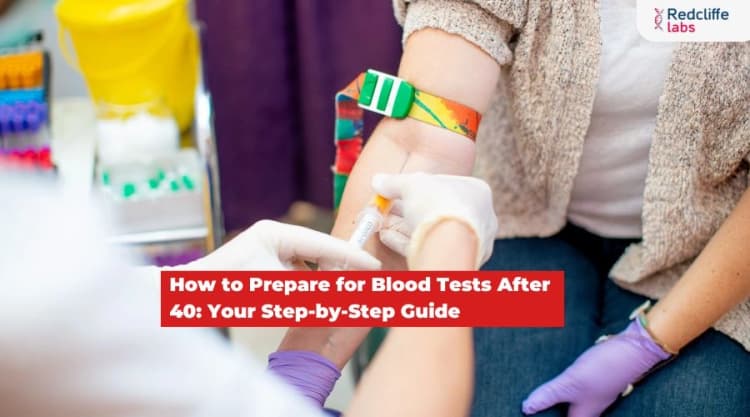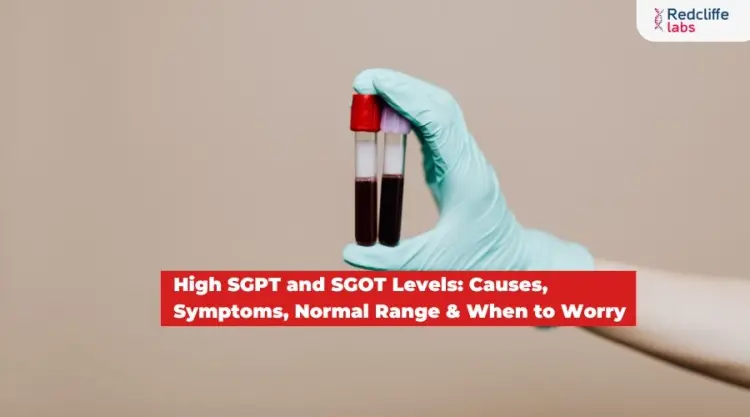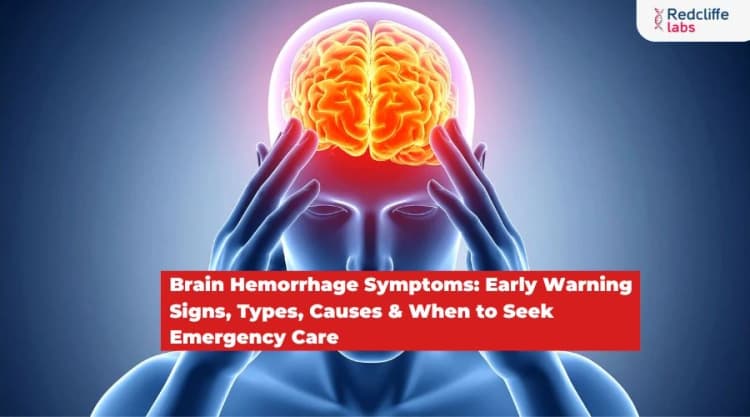This is our most comprehensive cancer-focused package for men. While the Essential pack...Read more
Blood
Unlock special
discount on
this package
Login to Unlock 🔓
NABL Accredited lab*




Booking Benefits Unlocked Worth FREE 799

Report Consultation

Diet Plan
*Available once your report is generated.
At Redcliffe Labs, we have a single goal: to give India its right to quality diagnostics.
Customers served
Tests Processed Everyday
Cities
Collection Centres
World Class In-house Labs
Home Collection Experts
31 Test Parameters
CA 19.9
1 PARAMETER INCLUDED
1 PARAMETER INCLUDED
- CA 19.9
Carcinoembryonic Antigen (CEA)
1 PARAMETER INCLUDED
1 PARAMETER INCLUDED
- Cancer embryonic antigen
Complete Blood Count (CBC)
26 PARAMETERS INCLUDED
26 PARAMETERS INCLUDED
- Absolute Basophils Count, Blood
- Absolute Eosinophil Count, Blood
- Absolute Lymphocyte Count, Blood
- Absolute Monocyte Count, Blood
- Absolute Neutrophil Count, Blood
- Basophils
- Eosinophils
- Hemoglobin Hb
- Lymphocytes
- MCH
- MCHC
- MCV
- MENTZER INDEX9MCV/RCC
- Monocytes
- MPV Mean Platelet Volume
- Neutrophils
- PCT
- PCV Haematocrit
- PDW Platelet Distribution Width
- Platelet Count Thrombocyte count
- P - LCC
- P - LCR
- RBC Count
- RDW-CV
- RDW (Red Cell Distribution Width)
- WBC-Total Counts Leucocytes
Prostate Specific Antigen (PSA) Profile
3 PARAMETERS INCLUDED
3 PARAMETERS INCLUDED
- Free PSA / Total PSA Ratio
- PSA- Free
- PSA- Total
Helps you know your test better
Who are eligible for the Cancer Advance Package?
- Cancers are easier to treat and manage when diagnosed early, and men who show symptoms at any age should undergo cancer screening. And even if you don’t have signs, begin routine cancer screening from age 40 to rule out any probabilities and better prevention.
Why take the Cancer Advance Package?
- The package covers different parameters that help diagnose cancer, even before it develops symptoms that increase one’s probability of receiving quality treatment, managing symptoms, and avoiding complications.
What are the benefits of the Cancer Advance Package?
- Detect cancer before it spreads it becomes severe
- Early detection increases an individual’s chances of better treatment and recovery
- This means less treatment, time, and money is required
- Increases your chances of survival
- Moreover, it helps you manage the symptoms easily and monitor how well the cancer treatment works (if you are already undergoing one). So, book a cancer advance package for males today.
Top Booked Health Checkup Packages
Reports in 12 hours
|Parameters 94
Reports in 12 hours
|Parameters 96
Reports in 12 hours
|Parameters 89
Reports in 12 hours
|Parameters 96
Reports in 12 hours
|Parameters 90
Helps you know your test better
Q. What is cancer screening?
Q. Can a blood test diagnose cancer?
Q. What tests are required to diagnose cancer?
Q. What are the common signs of cancer in men?
Verified by Medical Expert

MEDICALLY REVIEWED BY
Dr. Gurpreet Kau...

WRITTEN BY
Kirti Saxena
5 Simple Steps to Manage Your Health with Redcliffe Labs
Quick, Simple & Convenient; trusted care delivered to your doorstep.

Start Your Online Booking
Open the Redcliffe Labs website/app. Select the test or package and enter your details. Schedule the service for your preferred slot.

Live Tracking
Stay updated with real-time tracking for a smooth and timely home sample collection.

Sample Collection
Our certified experts ensure a smooth, hygienic, and fully compliant sample collection experience.

Doctor-Verified Smart Reports
Every report is clinically checked by expert doctors and shared with smart, actionable insights.

Your Health Journey Continues Post Reports
Consult with our expert medical team to get actionable insights to improve your health.
Nearby Labs(9)
Redcliffe Labs Noida

MC-5280
Redcliffe Collection Center
Redcliffe Collection Center
Redcliffe Collection Center
Redcliffe Collection Center
Redcliffe Collection Center
Redcliffe Collection Center
Redcliffe Collection Center
Redcliffe Collection Center
Frequently Asked Questions
Can I book a Cancer Screening Package Advance - Male near me?
Can I book a home collection for a Cancer Screening Package Advance - Male?
Health Articles & Blogs
My Health
Stay informed with our expert health articles and blogs. Explore comprehensive guides on diseases, nutrition, preventive care, and wellness tips to help you make better health decisions.
How to Prepare for Blood Tests After 40: Your Step-by-Step Guide

Why is PCOS Continuously Rising in Women?

10 Healthy Holi Recipes for Your Fitness Goals in 2026
Looking for healthy Holi recipes? Discover 10 festive dishes that support your fitness goals while keeping celebrations delicious.

Importance of Heart Health Before Pregnancy: Everything You Need to Know

Migraine Treatment at Home: Effective Ways to Relieve Migraines Naturally

High SGPT and SGOT Levels: Causes, Symptoms, Normal Range & When to Worry

Brain Hemorrhage Symptoms: Early Warning Signs, Types, Causes & When to Seek Emergency Care

What is SGPT in Blood Reports? Everything You Need to Know
Explore My Health
